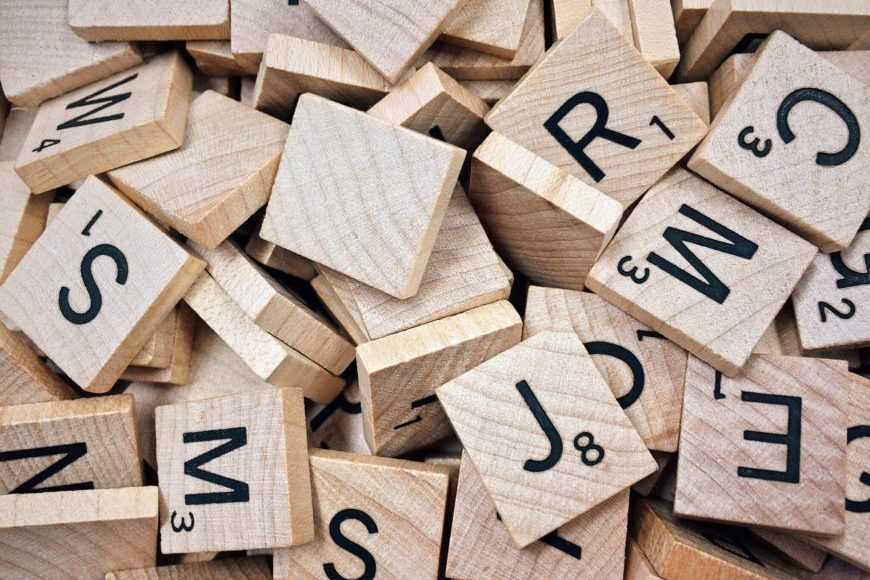
5 Words We Should Stop Using
We use words a lot.
Talking. Texting. Writing. Speaking.
It’s hard to imagine a world without words. Communication binds us together. Through conversation, we can express our ideas, feelings, and thoughts to others.
The words we use are important. But something we tend to forget is that what we don’t say can be even more important.
I know from experience how embarrassing it is to say a word that I thought I knew, but it turned out to mean something completely different. It would’ve been so much better if I had just avoided that word.
Think of a job interview, where one of the first impressions you make on the interviewer is how you communicate. Or a first date, where what you say and what you don’t say could be the difference maker in securing a second date.
None of us want to say the wrong thing, especially when we’re in an important situation. So here are 5 words/phrases to watch out for when we’re communicating.
1.) “Same Difference”
Think about it. How can something be the same but different?
This phrase is used more often than you might think. Here’s an example of when it might be said:
“Your chapel seat is only two rows in front of mine.”
“No, it’s two rows behind yours.”
“Yeah, same difference.”
This phrase is usually said by someone who has been proven wrong but makes a last-ditch effort to win an argument. We all have those moments when we say things without thinking of what is coming out of our mouths. This phrase is one of those that just slips out. But it’s one we should never use.
Instead of saying “same difference,” maybe we could say “that’s what I meant.” Or we could just admit that we were wrong in the first place.
2.) “Literally”
People literally use this word 100 times a day. Yes, people use literally way too much, but is 100 times a day the literal amount of times someone would use this word?
Probably not.
Literal means exact and precise. But for some reason, we use this word when we’re trying to exaggerate. Another reason “literally” made the list is because it has become annoying. We say this so much that the true meaning of it has been mercilessly slaughtered.
It’s okay to use “literally.” It’s a good word. Let’s just use it as it is meant to be used.
3.) “Good luck”
This is one I personally struggle with…a lot. In fact, I remember during midterms telling a friend “good luck” after he told me he was about to take a hard test.
I find it strange that whenever someone has a big performance or a hard test this is what we tell them. There’s nothing inherently wrong about wishing someone luck. But personally, I’m never comforted by someone’s hope that I am lucky.
It’s almost the same as saying, “I hope you do well, but I’m not going to take the time to pray for you, so hopefully, you’re lucky.”
I know we don’t mean that when we tell someone good luck. But is it really that hard to change “good luck” into “I’ll pray for you”?
Instead of wishing someone luck, maybe we could encourage them by saying “you got this!” Or, even better, we could tell them we’re praying for them.
4.) “Like”
You know how we like use this word all of the time. Like in our conversations this word just like comes out without us even thinking about it. I mean like why do we use this word so much?
Get the idea?
This has to be one of the most-used words in the English language. But it shouldn’t be. It’s such a weak word that has been turned into a meaningless word by how often we use it. If a word doesn’t need to be said, we shouldn’t say it. The way we use “like” in many of our conversations has no purpose whatsoever. It’s just there.
It’s similar to the veggie tray at a party. No one knows why it’s there, but it keeps showing up. We can use this word as it’s meant to be used, but it gets really annoying when we throw it into random spots of our sentences.
5.) “Lit”
“The game last night was so lit!”
Eventually, this phrase will make me go crazy. But I’m hoping it dies out before that happens.
I did a little research and was intrigued to find that “lit” began around the year 1910, and it originally meant “intoxicated.”* Somehow over time, “lit” eventually evolved into meaning “great,” “cool,” and “excellent.”
The prominence of social media, especially Twitter, has made this word a trend in our culture. But I don’t think we want the future of the English language to be decided on Twitter.
So let’s try to avoid this word unless we’re lighting something on fire.
There you have it. Five words and phrases we should stop using. Although we don’t think about words often, there is no denying how important they are.
Choosing to use good words can help us in many great ways. But choosing to avoid bad words can be an even bigger benefit as we jump into the real world. So let’s be intentional about what we say. And let’s think twice about the words we’re choosing to use.
I want to hear what you have to say! Comment below a word or phrase you hear that we need to stop using.
*http://www.dictionary.com/e/slang/its-lit/
57
You must be logged in to post a comment.